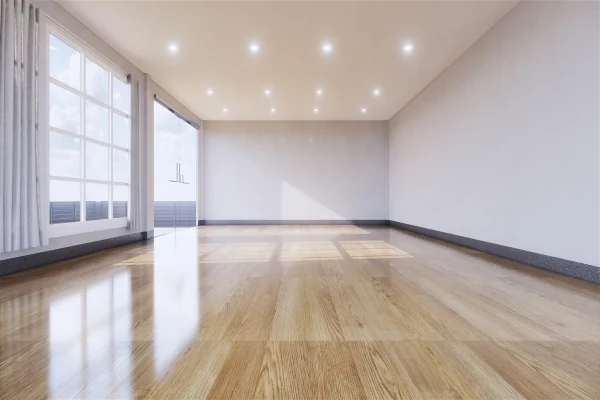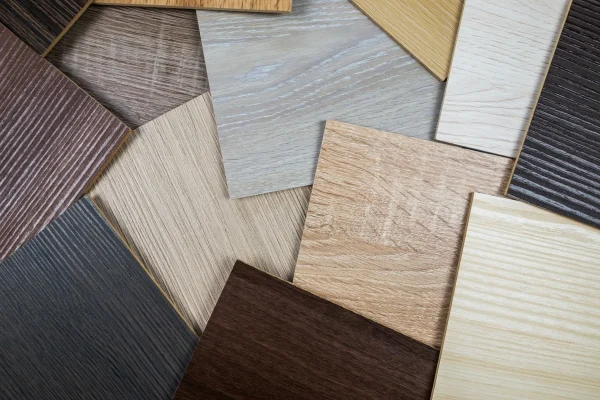Best Way to Mop Commercial Floors
Â
Commercial floors represent a significant investment for any business, and their maintenance needs vary depending on the level of foot traffic they endure. From hardwood to tile, ceramic, and commercial carpet, each type of flooring requires specific cleaning techniques to maintain its appearance and longevity. Understanding these differences is key to keeping your floors looking clean and professional at all times.
Let’s explore the best ways to keep your commercial floors in top condition!
Why Deep Cleaning Commercial Floors Matters
Your floors are the first thing customers see when they enter your business, and they play a big role in shaping their overall impression. A dirty or unkempt floor can immediately turn off potential clients and make your establishment seem unprofessional. On the flip side, clean and well-maintained floors create a positive environment that encourages customer engagement and trust.
High-traffic areas like lobbies, hallways, and retail spaces are especially prone to dirt, dust, and spills. These elements not only affect the aesthetics of your space but also pose safety risks. Regular deep cleaning helps eliminate these issues, ensuring a safe and welcoming environment for everyone who visits your business.
Imagine walking into a store with sticky, dusty, or muddy floors. Would you feel comfortable shopping there? Probably not. Clean floors not only look better but also reflect the quality and care your business puts into its operations. That’s why it's important to schedule regular cleaning sessions before and after business hours to keep things spotless.
Essential Tools for Cleaning Commercial Floors
Before diving into the cleaning process, it’s essential to have the right tools and equipment. These will help you achieve a thorough and efficient clean without damaging your flooring.
Mop
A good mop is the cornerstone of any floor-cleaning routine. Choose one that is durable and has a replaceable or washable head to ensure effective cleaning. Different types of mops suit different flooring materials:
- Microfiber Mops - Ideal for hardwood floors as they leave no streaks and trap more dirt.
- String Mops - Great for tile and ceramic floors, as they reach into tight corners and grout lines.
- Sponge Mops - Versatile for most surfaces, but avoid overly abrasive ones to prevent scratches.
Mop Bucket
A bucket is necessary to hold your cleaning solution and rinse water. Look for one with a foot pedal for easy access without touching dirty water. Make sure to wring out your mop frequently to avoid leaving excess moisture on the floor, which can cause slipping hazards.
Cleaning Solution
The right cleaner depends on your floor type. Always use products designed for your specific flooring to avoid damage. For example, hardwood floors require gentle, pH-neutral cleaners, while tile and vinyl can handle stronger solutions. The goal is to remove dirt and bacteria without compromising the integrity of your flooring.
Vacuum Cleaner
While not always necessary, a vacuum cleaner is useful for removing loose debris before mopping. A steam cleaner can provide an extra deep clean, especially in high-traffic areas. If you have carpets, consider a wet vacuum for better stain removal.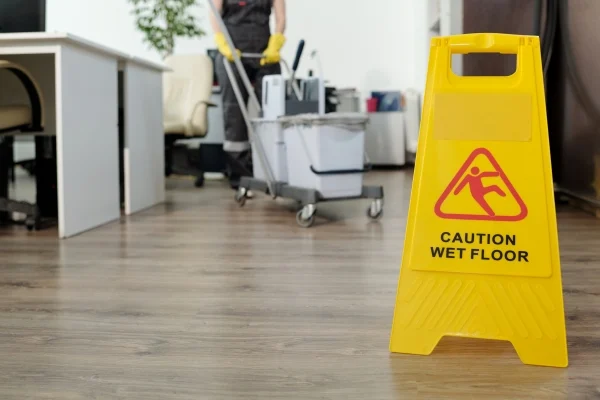
Wet Floor Signs
Always place warning signs when mopping to prevent slips and falls. This is crucial for maintaining a safe environment for both employees and customers.
Broom or Dust Mop
Sweep or dust mop before mopping to remove loose particles. Skipping this step can push dirt around and make your floor appear dirtier than it is.
Degreaser
For kitchens with tile floors, a degreaser is essential to remove oil and grease buildup. It helps keep your floors looking fresh and hygienic.
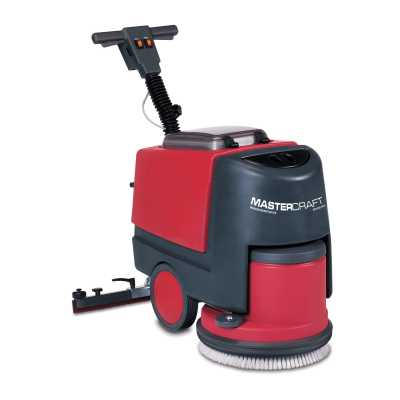 Floor Scrubber
Floor Scrubber
For stubborn stains or heavy cleaning, a floor scrubber can be a game-changer. Choose between manual or electric models based on your needs and budget.
Now that you know what tools to use, it’s time to get started with your cleaning routine!
How to Mop Commercial Floors
Different flooring types require different cleaning methods and solutions. Here's a breakdown of how to properly mop various commercial floors:
Tile Floors
Tile floors are durable and easy to clean, but they can become slippery when wet. Use a non-slip cleaner and don’t forget to clean the grout regularly. Start by sweeping the floor, then mix your cleaning solution and mop in a back-and-forth motion. Wring out the mop to avoid excess water and let the floor dry completely.
 hbspt.cta._relativeUrls=true;hbspt.cta.load(7667689, '1caa7391-d1db-42ca-b79c-8f80044f1608', {"useNewLoader":"true","region":"na1"});
hbspt.cta._relativeUrls=true;hbspt.cta.load(7667689, '1caa7391-d1db-42ca-b79c-8f80044f1608', {"useNewLoader":"true","region":"na1"});
How to Clean Tile Grout
- Mix one part baking soda with half a part hydrogen peroxide and one tablespoon of dish soap. Alternatively, use white vinegar mixed with water.
- Spray the mixture onto the grout and let it sit for 30 minutes.
- Scrub the grout thoroughly to remove dirt and stains.
- Rinse the grout with warm water and dry it if needed.
How to Clean Tile Floors
- Sweep the floor to remove dust and debris.
- Divide the area into sections to avoid stepping on cleaned spots.
- Prepare a mild detergent solution and dip your mop into it.
- Mop in one direction using a string mop for better coverage in grout lines.
- Dry the floor with a microfiber mop or let it air dry.
Hardwood Floors
Hardwood floors are popular in commercial spaces for their elegance and durability. However, they are sensitive to moisture and should be cleaned carefully. Use a soft-bristled mop or microfiber pad to avoid scratches.
How to Clean Hardwood Floors
- Sweep the floor to remove dust and dirt.
- Start from the farthest corner and work your way out.
- Use a hardwood-specific cleaner to avoid damaging the wood.
- Mop in one direction using a microfiber mop. Avoid sponge or string mops as they may soak up too much liquid.
- Let the floor dry completely and apply a layer of wax to protect it.
Carpet Floors
Carpet floors add warmth and style to a commercial space but require regular maintenance. Vacuuming, spot cleaning, and steam cleaning are essential to keep them looking their best.
How to Clean Carpet Floors
- Vacuum the carpet in one direction to lift dirt and debris.
- Treat any stains with a spot cleaner according to the instructions. Use a spray bottle to apply the solution evenly.
- Steam clean the entire carpet to deep clean and refresh it. Ensure the water being suctioned is clear at the end.
Â
Vinyl Composition Tile
Vinyl composition tile is a cost-effective and easy-to-maintain option for many businesses. It is resistant to moisture and can withstand heavy foot traffic. To keep it looking great, sweep regularly and use a mild cleaning solution when mopping.
How to Clean Vinyl Floors
- Sweep the floor to remove dust and debris before mopping.
- Mix a mild detergent with water to create your cleaning solution.
- Avoid over-saturating the mop head, as this can leave the floor wet rather than clean.
- Let the floor air dry or wipe it with a clean microfiber mop.
Hiring Professional Cleaners
If your business is large or your staff is limited, hiring professional cleaners can save you time and effort. Professionals are trained to handle different types of flooring and can provide a deeper, more thorough clean. However, if you're running a smaller business, you may be able to manage the cleaning yourself with the right tools and knowledge.
When hiring professionals, make sure they are experienced in cleaning your specific type of flooring. This ensures that your floors receive the proper care and avoids any potential damage. It’s also a good idea to be present during the cleaning process to guide them and ensure everything is done correctly.
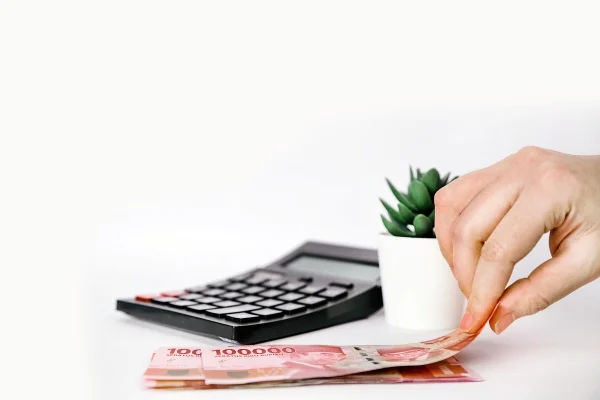
Budget-Friendly Cleaning Tips
You don't need to spend a fortune to keep your floors clean. There are several affordable alternatives to store-bought cleaning products that work just as well, if not better.
Here are some cost-effective ways to keep your commercial floors looking great:
Make Your Own Cleaning Solution
Many DIY cleaning solutions are simple to make and highly effective. For example, mixing equal parts white vinegar, rubbing alcohol, and water with a teaspoon of dish soap makes a powerful cleaner for tile and vinyl floors. You can also use baking soda and water for a natural alternative.
DIY Hardwood Floor Cleaner
To give your hardwood floors a shine, mix one gallon of water with three-quarters cup of olive oil and half a cup of lemon juice. This homemade cleaner is gentle yet effective and leaves a pleasant scent.
Final Thoughts
Keeping your commercial floors clean doesn’t have to be complicated or expensive. With the right tools, cleaning solutions, and a little bit of effort, you can maintain a clean and inviting environment for your customers. Whether you choose to do it yourself or hire professionals, always remember to test new cleaners in a small area first and follow the manufacturer’s guidelines to avoid any damage.
So, take a moment to assess your floors and start cleaning today! A clean floor not only looks better but also contributes to a safer and more professional business atmosphere.
 hbspt.cta._relativeUrls=true;hbspt.cta.load(7667689, '68632c8b-76e2-4d28-89fe-a2b1fcda8aa4', {"useNewLoader":"true","region":"na1"});
hbspt.cta._relativeUrls=true;hbspt.cta.load(7667689, '68632c8b-76e2-4d28-89fe-a2b1fcda8aa4', {"useNewLoader":"true","region":"na1"});
Abs Pipe Extrusion Equipment,Pe Pipe Extrusion Equipment,Abs Co Extrusion Pipe Extrusion,Abs Anti Static Pipe Production Line
Zhejiang Jinhai Plastic Machinery Co., Ltd. , https://www.jinhaiextruder.com
